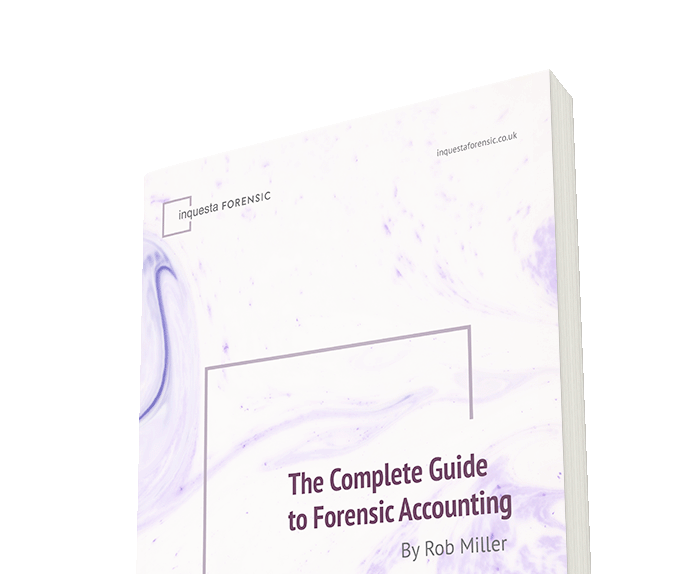FORENSIC INSOLVENCY
Our forensic insolvency service combines the expertise of our corporate recovery experts and the attention to detail that comes with forensic accounting.
What is Contentious Insolvency and How do Forensic Accountants Help?
Contentious insolvency occurs in cases where a company director is suspected of causing their business to go insolvent through negligence or activities which breach their fiduciary duties. The task of resolving contentious insolvency cases will usually fall to forensic accountants performing a forensic insolvency investigation. This is because contentious insolvency is considered to be highly complex and requires the highest level of attention-to-detail.
Why a Forensic Insolvency Recovery Service is Important
A specialist forensic recovery service can be the difference between creditors receiving the funds they are owed and not. Practitioners are highly-skilled and adept at locating assets that may have otherwise remained undiscovered.
Forensic insolvency experts also have powers to force any uncooperative parties to provide information that may prove crucial to a case. This can be a huge benefit to both prosecution and defence teams.

Need Our Assistance?
If you need specialist guidance with a contentious insolvency, no matter how complex, you can rely on our forensic insolvency service to help.
Documents Used to Investigate Forensic Insolvency Cases
The following are methods of sourcing information to help with a forensic insolvency claim:
- Company Records
- Bankruptcy Records
- Solicitors’ Files
- Accountants’ Files
- Bank Records
- Auditors’ Files
- HM Revenue and Customs Files
The team at Inquesta Forensic has the experience and know-how required to thoroughly investigate any insolvency case to collect key pieces of evidence and identify a root cause.
Free eBook
The Complete Guide to Forensic Accounting
Learn how forensic accounting can have an impact on a wide range of business and personal matters, the processes involved, and how Inquesta Forensic can assist with our free downloadable guide.

Contentious Insolvency Issues
There are a wide range of contentious insolvency issues. From misfeasance and preferential payments to creditors, to wrongful and fraudulent trading, each one can have serious consequences if proven, and therefore needs to be handled with the utmost care and attention to detail. Examples of contentious insolvency issues are:
If a company director opts to continue to trade despite being fully aware that insolvency is likely on the horizon for their business, they could face allegations of wrongful trading. A director will also be guilty of wrongful trading if it is deemed that they should have been aware of the dire circumstances their firm was in.
The act of fraudulent trading refers specifically to a company continuing in its operations with the obvious intention to deceive/defraud creditors, investors, and customers. Fraudulent trading is in definition similar to wrongful trading. However, while wrongful trading is deemed a civil offence, fraudulent trading is a criminal one.
A preference payment refers to a payment made by an insolvent company immediately prior to them becoming insolvent. A payment may be deemed to be preferential if a business chooses to pay one party, while apparently being unable to pay off creditors who are higher up the pecking order, such as those who hold a fixed charge over certain assets.
Misfeasance refers to a knowing breach of fiduciary duties that results in losses incurred by company creditors. An administrator appointed to oversee an insolvency will look for signs of misfeasance and signs that a director has knowingly compromised their position.
Dividends are deemed to be unlawful if a company has insufficient profits to cover the particular amount paid. They can also come under scrutiny if it is discovered that appropriate authorisation has not been provided for their release. Any director who authorises the payment of unlawful dividends could find themselves personally liable for whatever amount was paid out.
A transaction at undervalue involves the gifting or selling off of an asset at a rate considered much lower than its actual market value. It can be seen as a way to get around having to pay debts to creditors. Should malpractice be proven, the court may order that the asset in question be returned to the company, or all proceeds from the sale be restored and given to the administrator.
The Expert Contentious Insolvency Practitioner
Insolvency can be a complicated and delicate process. This is why, when instructed, we will investigate with tact, without compromising the effectiveness and efficiency we pride ourselves on.
Our director-led service begins by offering a no-obligation consultation, where we will perform a preliminary review of the case to assess its validity, if/how we can help, and the information we would require to proceed. We place the best interests of our clients at the forefront of everything we do, and work tirelessly to achieve the best possible result.
Frequently Asked Questions
While some cases of insolvency look on face value to be relatively straightforward and a business has just fallen on hard times, the reality could be that something untoward has taken place. If there is ever any doubt, this should be explored as it could bring about an important settlement for creditors that would otherwise not have happened.
While forensic insolvency investigations may seem out of reach for many creditors, especially if they suspect a debtor has no assets to their name, a specialist practitioner such as Inquesta Forensic will be able to keep costs to a minimum and offer a tailor-made solution to suit the needs of their client.


